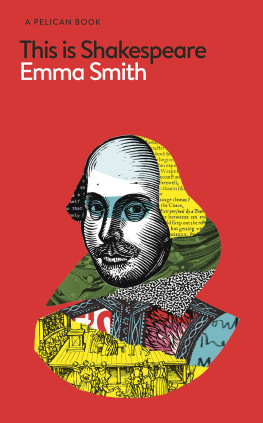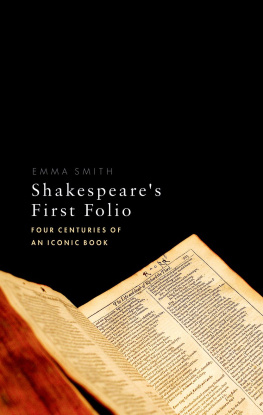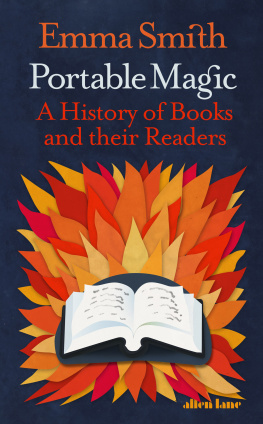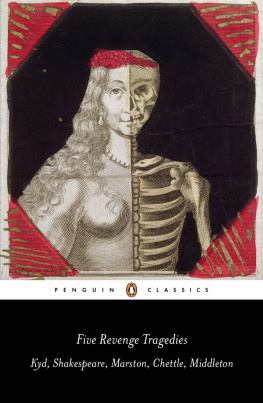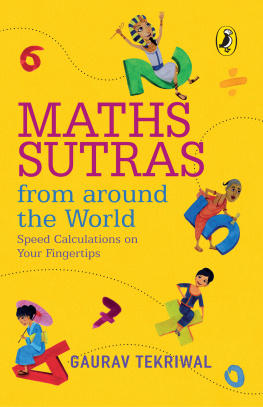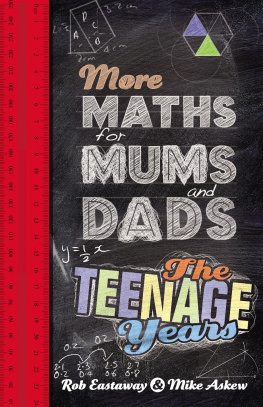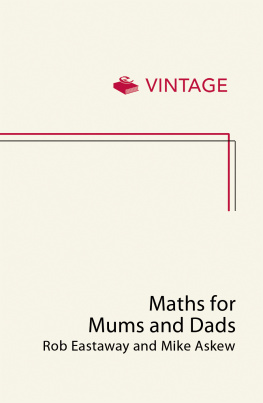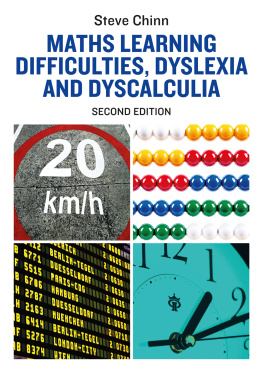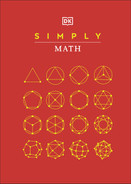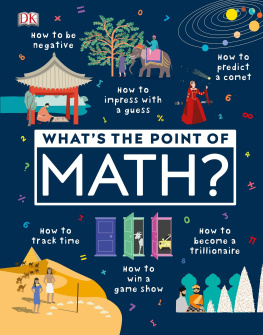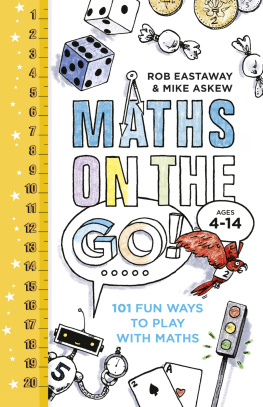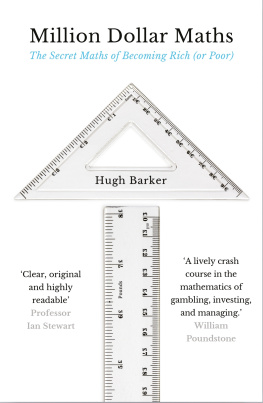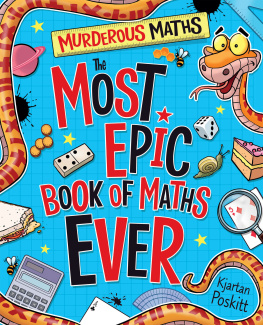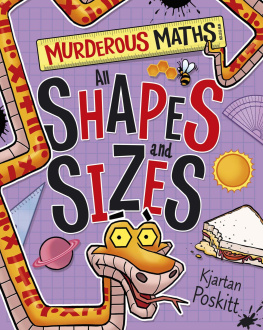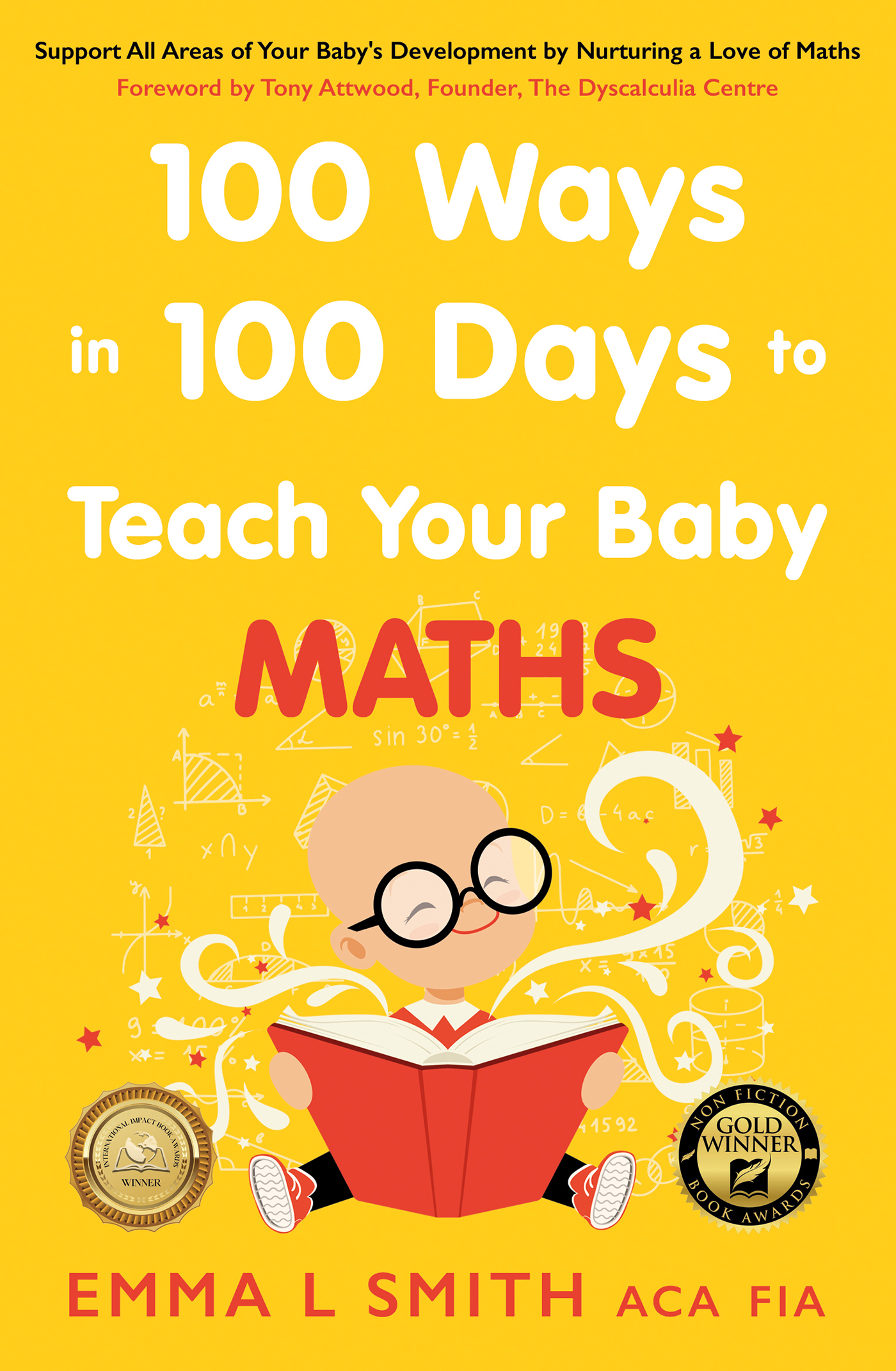100 Ways
in 100 Days to
Teach Your Baby
MATHS
Copyright 2021 Emma L Smith
The moral right of the author has been asserted.
Apart from any fair dealing for the purposes of research or private study,
or criticism or review, as permitted under the Copyright, Designs and Patents
Act 1988, this publication may only be reproduced, stored or transmitted, in
any form or by any means, with the prior permission in writing of the
publishers, or in the case of reprographic reproduction in accordance with
the terms of licences issued by the Copyright Licensing Agency. Enquiries
concerning reproduction outside those terms should be sent to the publishers.
Matador
9 Priory Business Park,
Wistow Road, Kibworth Beauchamp,
Leicestershire. LE8 0RX
Tel: 0116 279 2299
Email: books@troubador.co.uk
Web: www.troubador.co.uk/matador
Twitter: @matadorbooks
ISBN 978 1800466 715
British Library Cataloguing in Publication Data.
A catalogue record for this book is available from the British Library.
Matador is an imprint of Troubador Publishing Ltd

For Henry and Isla,
who have taught me more
than I could ever teach them.
EMMA L SMITH ACA FIA
100 Ways
in 100 Days to
Teach Your Baby
MATHS
Support All Areas of
Your Babys Development by
Nurturing a Love of Maths
Edited by Barbara McNichol

The strongest predictors of later achievement are school-entry math, reading, and attention skillsearly math skills have the greatest predictive power, followed by reading skills and then attention.
Greg Duncan,
Professor of Education, University of California
Preface
Some people enjoy mathematics, and their confidence in this area helps them with many aspects of their lifefrom small everyday decisions to significant areas such as the career paths available to them.
They are the lucky ones.
But is it really luck? Are some people genetically predisposed to understand numbers and others not?
It is not uncommon for people to casually state they are not good at maths. This admission seems to be acceptable in a way that would not be if they struggled with basic literacy. Why is this? What impact does it have on their children?
When researching dyscalculiadefined as a severe difficulty in making arithmetical calculationssadly, it did not surprise me to discover that one category of dyscalculia included this quotation:
A parent may have said something along the lines of I could never do maths at school and it never harmed me . While such statements may well have been made with the best intent, they can, in many cases, undermine any subsequent attempt to help the young person overcome difficulties with maths.
Tony Attwood , founder, The Dyscalculia Centre
For me, this comment highlighted the important role that we, as parents or carers, have in assisting our children to feel confident about having a go at maths. Confidence can lead to enjoyment. In turn, enjoyment can allow children to fully embrace this important area as they maximise their ability and future opportunities.
I felt it was important for the cycle of maths anxiety to be broken. What better way to do that than by surrounding babies with the language of maths via books, nursery rhymes, toys, and activities. This familiarity would help them on many levels. They would not be nervous when encountering maths in formal education. In addition, they would build a secure and strong bond with their parent(s) through the one-to -one time investedand their literacy skills would improve, too. I could see no downside.
It was a significant moment when I stumbled across a study by Professor Susan Levine. Her study confirmed my assumption that infants who heard more number words went on to achieve better maths results in school. How simple. How easy. How sad that many babies miss the opportunity to maximise their maths ability because this fact is not widely known.
From here, I investigated as many baby maths studies as I could. The hard evidence was so compelling, I wanted to share it with you in this book.
The evidence kept reinforcing these key points:
Babies seem to be born with an amazing number sense: understanding shapes in the womb, being aware of quantities at seven hours old, assessing probability at six months old, and comprehending addition and subtraction at nine months old.
The best time to introduce maths is infancy. By the time children enter school, there is already a significant gap in maths skills.
A parents attitude shapes a childs attitude. You have the power to teach your baby that maths is enjoyable and not something to be anxious about.
Your baby can learn maths while boosting all other areas of development. For example, movement will be boosted while teaching geometry positional language, literacy will be boosted while reading a number book, and bonding will be boosted while giving your baby your undivided attention teaching maths to him or her.
Babies will use maths every day for the rest of their lives. Thats why maths is important.
This book has no worksheets or tests, and the activities can fit in with busy days. By providing hints, tips, and suggestions to engage with your baby about maths, it breaks down this huge subject into 100 easily digestible topics. Every day for 100 days, you will find an activity, song, or story that helps introduce your baby to maths. Notice which activities work well for your baby and highlight the ones that resonate with you. Determine those that motivate you to continue teaching your baby maths and, by doing so, encourage all areas of development.
Most of all, this book provides evidence to help you realise how amazing your baby is as you get to know his or her potential to embrace numeracy from birth.
Foreword
For many centuries, there has been an argument raging. It goes like this: Is maths a natural part of the universe, or is it an idea invented by people? Put another way, If we ever discover aliens, would they do maths?
Heres a second question: Are people who just dont seem to understand maths suffering from a genetic malfunction or just bad schooling?
A lot of people have spent a huge amount of time arguing about these questions. And occasionally, Ive been invited to join in. When that happens, I can be rather awkward and raise another question: What number do we have in our maths that doesnt exist in Roman numerals?
I ask this to show that maths itself can be an exploration.
So, what about this missing Roman number? A bit odd, isnt it? After all, the Romans ruled much of Europe, Britain, and North Africa for 2000 years. How could they have missed out a number? What did they dogo one, two, three, five?
In many countries, maths is considered to be dull. And of course, some people find maths really, really hard. Some even say they just cant do it. Indeed, some poor soulsthose we call dyscalculicdont get maths at all. They are not just poor at maths; they really cant do it at all.
Yet it turns out that, if we were to help expose people who find maths tough to lots of numbers, lots of counting, and all sorts of number games from the very start of lifeand if we make numbers real so we dont just have two but we have two bananas and we keep playing with numbersmaths can get better.


